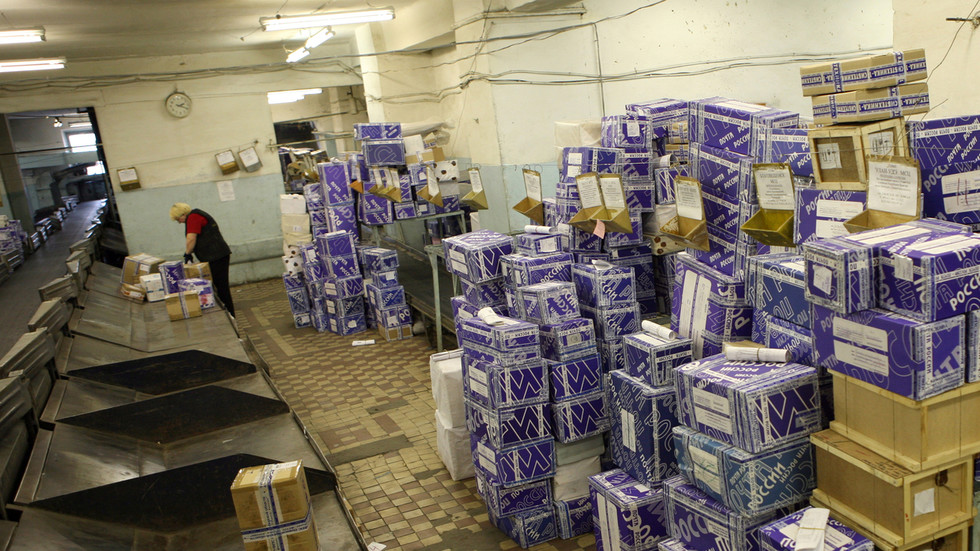
A Western ban on payments from the country undermined the company’s bottom line last year, according to an official report

FILE PHOTO: Sorting mail at the Pochta Rossii Novosibirsk sorting center. © Sputnik / Valery Titievsky
The Russian state postal service has reported massive losses for the first time in nine years, largely due to logistical disruptions caused by Western sanctions, annual results published on Monday showed.
Russian Post incurred total cumulative loss of 30.4 billion rubles ($373 million) in 2022 under international financial reporting standards (IFRS). The operating loss was 15 times larger than a 2.3 billion ($28.2 million) profit recorded in 2021, the figures showed.
Sales revenue dropped by 3.1% last year to 221.2 billion rubles ($2.7 billion), while operating expenses surged 13.8% over the reporting period, amounting to 257.3 billion rubles ($3.15 billion). The loss from operating activities in 2022 reached a record 32.6 billion rubles ($399 million) compared to a profit of 4.7 billion rubles ($57 million) in 2021, according to the official results.
Earlier in March, Russian Post said in a news release that the cost of logistics and equipment maintenance increased sharply last year. Meanwhile the flow of both incoming and outgoing international mail has dropped dramatically “due to the suspension of global brands in Russia, difficulties with payments and transport restrictions.”
READ MORE: Food item most affected by anti-Russia sanctions revealed
The CEO of Russian Post, Mikhail Volkov, acknowledged that the past year has been challenging for the company, as a Western ban on Russia-based payment cards overseas has dramatically reduced the volume of international trade.
The company’s revenue in the cross-border segment slumped by 11.4 billion rubles ($139 million).
Another factor contributing to the losses was a 14 billion ruble ($171 million) investment in pay rises for both core staff such as operators, mail carriers and sorters, as well as for employees of IT departments.
Russian Post remains one of the country’s largest companies, employing around 300,000 people.
For more stories on economy & finance visit RT’s business section




